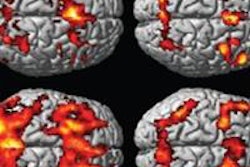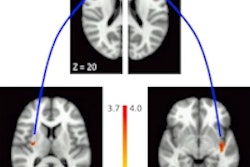Using functional MRI (fMRI), researchers are investigating how the brain reacts to advice, such as when a doctor tells a patient to exercise more or a spouse encourages healthier eating.
Subjects who completed a self-affirmation exercise in addition to receiving health advice showed higher levels of activity in the ventromedial prefrontal cortex on fMRI, compared with those who did not do the self-affirmation exercise. The affirmation group went on to show a steeper decline in sedentary behavior in the month following the intervention, according to the study, which was published online February 2 in the Proceedings of the National Academy of Sciences.
The researchers studied 67 sedentary adults who wore devices on their wrists to measure activity levels for a week before and a month after the health intervention. Subjects were shown messages delivering health advice while undergoing fMRI, and for some, the health messages were paired with self-affirmation messages, like "think of a time when you will help a friend or family member reach an accomplishment."
"Our work shows that when people are affirmed, their brains process subsequent messages differently," said lead author Emily Falk, PhD, from the University of Pennsylvania, in a statement. "Understanding the brain opens the door to new health interventions that target this same pathway."



.fFmgij6Hin.png?auto=compress%2Cformat&fit=crop&h=100&q=70&w=100)




.fFmgij6Hin.png?auto=compress%2Cformat&fit=crop&h=167&q=70&w=250)











